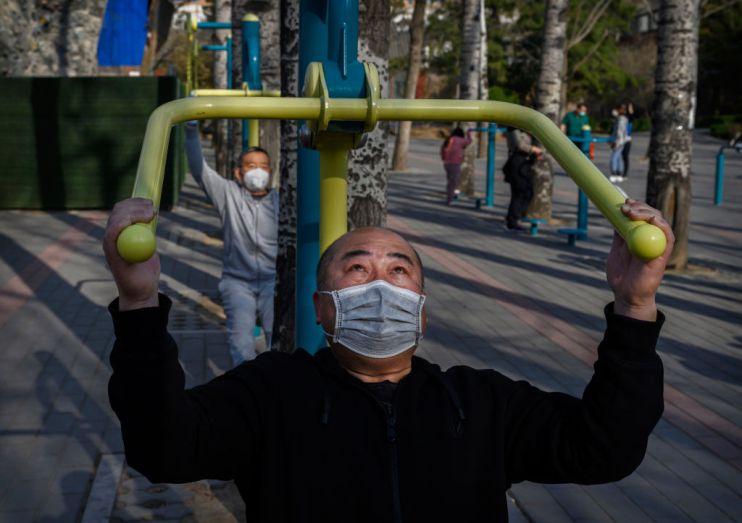China is using the coronavirus crisis to its advantage

It is easy to lose your bearings while in self-isolation. Trust me, as I’m into the fourth week of quarantine here in Milan, I entirely understand. But baseline realities matter even more in a genuine crisis.
One such truism was put best by John Stuart Mill: all it takes for evil to triumph in the world is for enough good men to do nothing. And at the moment, utterly preoccupied by the coronavirus crisis, the greatest single political risk event of the new century, the good men of the west are sleeping.
Yet geopolitics goes on, whatever the calamity. In the case of the coronavirus catastrophe, ironically it is China — the initial propagator of the virus — that stands most to benefit. History sometimes favours the culpable.
In true Orwellian fashion, the repressive regime of Xi Jinping is affronted that some in the west are labelling the coronavirus the “Chinese” or “Wuhan virus”, even though assuredly this is where the worst pandemic of the past 100 years began.
Incredibly, aided by the mindless left in the west, Beijing is affecting hurt, saying that such comments are racist, rather than merely amounting to statements of fact.
But there is a far more serious matter lurking beneath the surface here, amounting to the first plank in the current Chinese public relations offensive. China, shamelessly, is trying to divert attention from the inconvenient truth that for close to two months it covered up the extent and even existence of the virus, in a selfish effort to shield its economy and spare the blushes of the ruling Communist Party.
Of course, this criminally negligent behaviour allowed the virus to spread to an unsuspecting world. The Party would be happier if you simply forgot this; instead it should be shouted from the rooftops.
Second, Beijing has lost no time in taking advantage of the sluggish response to the virus emanating from both Brussels and Washington. China may be criminally culpable in spreading Covid-19, but Beijing is determined to win the post-virus narrative.
For example, while the hard-pressed Italians were first bearing the brunt of the disease in Europe, a selfish Germany Chancellor Angela Merkel decided to hoard surgical masks. Adroitly filling the vacuum, China pledged to Italy 1000 ventilators, two million surgical facemasks, 100,000 respirators, 20,000 protection suits, and 50,000 test kits.
Third, Beijing is fully energised in winning over the world with a basic new reality. Due to its ruthless but effective authoritarian response and the innate discipline of its people, it has successfully seen off the virus. Beijing is making it clear that, in this dangerous new world, its success illustrates that dictatorship is a more effective system than chaotic democracies.
The very global timeframe of the coronavirus spread itself favours the Chinese. As the first to be hit by and get through the virus, China will now be ramping up its economy, even as later-hit Europe and North America are struggling with the plague. This means that China will have a huge economic advantage in coming online first in the post-coronavirus world.
In essence, the crisis is merely ruthlessly making clear weaknesses already present in the international system well before it struck: Europe is both weak and less than a real union, while the US has lost interest in Europe as its gaze turns to Asia — with much of the world’s future growth as well as much of its global risk.
Into this global pandemic and geopolitical vacuum, China has begun to play the strategic game of dividing an already fractured Europe.
America must (yet again) help come to the rescue of its European allies by collectively engaging in economic stimulus across the transatlantic space — and even better at the G20 level — as saving the old continent strategically helps safeguard the new continent.
One final positive thought, which ought to stand as the west’s collective propaganda riposte to the Chinese. The only real way to “solve” the coronavirus crisis in policy terms is to develop a vaccine. Given America’s pre-eminence in biotechnology and the life sciences, Washington should strain every sinew, developing a Manhattan Project-style programme, getting there first, ahead of the Chinese, and getting their better, in terms of a safer, more comprehensive product.
Western democratic states have a far better record of innovation than do Communist dictatorships, precisely because the work emanates in free societies where creativity is not punished.
We in the west, awakening from our nap from history, must not be shy about combatting Chinese propaganda with this central, and very real, fact.
Main image credit: Getty